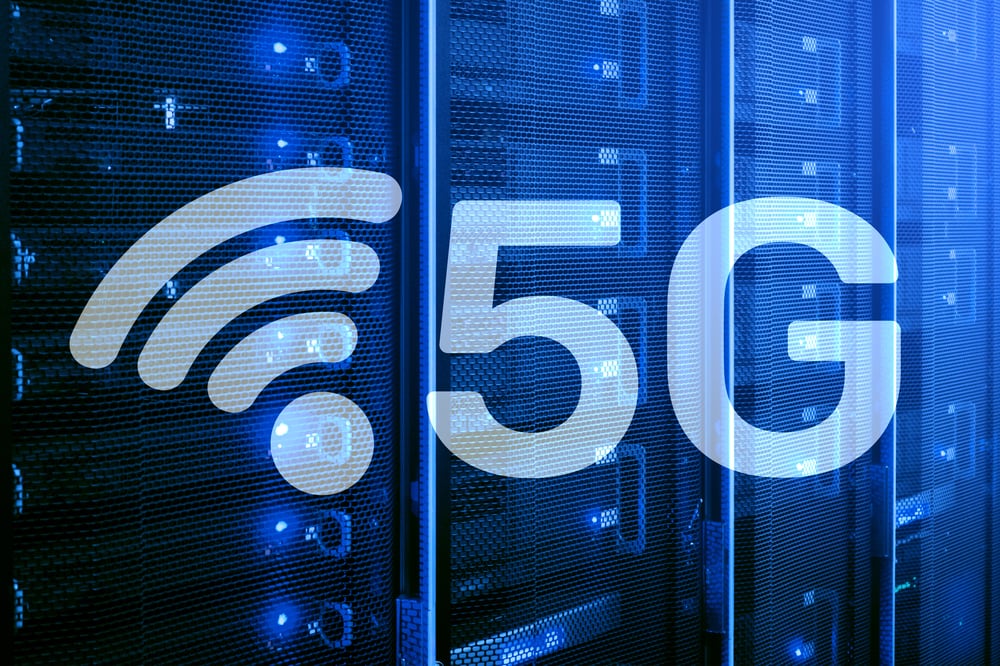
T-Mobile (NASDAQ:TMUS) announced it will be activating the nation’s first 5G network. However, the network will not be available until the company releases its first 5G phones. That is scheduled to take place on Friday, December 6.
The company is seeking to set realistic expectations for the launch. For starters, the new 5G phones will only support a 600MHz (or low-band) network. This will be slower than other limited 5G networks from competitors such as Verizon NYSE: VZ and AT&T NYSE: T.
However, T-Mobile claims its service will reach over 200,000 more customers than its competition. The company also says its network will reach over 60% of the United States, covering one million square miles mostly in rural America. This is not insignificant news since most of the 5G networks that have been launched are available only in limited pockets of metropolitan areas.
The release is not doing much for the stock
Unfortunately, the announcement is not providing a spark for T-Mobile’s stock price. The stock is essentially flat since the announcement. The primary reason for this is the limited network that the phones will support. As we get later into 2020, more companies will release 5G phones that will provide the top-tier speeds, and still be able to access the low-band speeds for the phones that T-Mobile is releasing.
This is a key reason why T-Mobile is trying to merge with Sprint NYSE: S. It would give them access to all the 5G technologies that will be available.
TMUS stock is in need of a catalyst
Although T-Mobile stock is up nearly 20% in 2019, it has been down over 4% since its last earnings report. The company beat on earnings but fell slightly short of analysts’ projections for revenue. Nevertheless, the company showed year-over-year revenue growth.
This is not unique to T-Mobile. Investors have been cooling on the stocks of many telecom companies. Verizon, AT&T, and Sprint have also had declining stock prices in the last month.
The reason is that investors know many consumers are waiting for the release of 5G phones. For example, for all the hype surrounding the recent launch of their Series 11 iPhones, Apple NASDAQ: AAPL won’t bring 5G iPhones to market until 2020.
Why is 5G so significant?
Unlike the incremental jump from 3G to 4G, the introduction of 5G technology is going to be a game-changer for many consumers. Yes, 5G is “faster”. But what does faster mean? You will be able to download full-length, high definition movies in seconds. And that’s pretty cool. But it’s really just a parlor trick for what 5G really offers to consumers.
5G is an existential threat to the cable companies
As more and more consumers use their mobile devices for e-commerce, 5G provides the ability to handle augmented reality and other applications that will enhance the user experience. But it goes even further than that. The 5G network on your smartphone will probably be faster than your home’s WiFi network. Already consumers are cutting the cord of cable and satellite television. But if the 5G network on their mobile device can be used to tap into their home network, the consumer could cut the connection to cable companies altogether. And what if the 5G network could be wired to your car? How would that change how consumers use Bluetooth connections today?
At this point, the cable companies are expressing indifference to the technology. However, T-Mobile CEO John Legere disagrees. Writing in a corporate blog back in February, Legere exclaimed, “The cableopoly is scared! They’re scared about 5G, and the new T-Mobile, and finally having to compete.”
Legere has promised that if T-Mobile is allowed to merge with Sprint, it will provide average speeds with lowband and mid-band wireless spectrum of more than 100 Mbps to 90% of U.S. households by 2024. According to Legere this would provide an estimated savings to consumers of up to $13 billion a year on home broadband because consumers would only need one network.
Still, some technical hurdles remain. According to Kevin Hart, Cox’s chief product and technology officer, a standalone wireless network would not be sufficient to handle the bandwidth demands that come from the use of dozens of connected devices and games. “Only a wireline network is going to be able to handle the massive capacity that comes with home broadband,” said Hart. “We view a purely wireless network as complementary to cable, not as a replacement.”
However, T-Mobile argues that their 5G network will bring customers “the massive capacity gains and dramatic increases in speed to bring real competition and real choice for in-home broadband to Americans who have been at the mercy of the cable companies for too long.”
Before you make your next trade, you'll want to hear this.
MarketBeat keeps track of Wall Street's top-rated and best performing research analysts and the stocks they recommend to their clients on a daily basis.
Our team has identified the five stocks that top analysts are quietly whispering to their clients to buy now before the broader market catches on... and none of the big name stocks were on the list.
They believe these five stocks are the five best companies for investors to buy now...
See The Five Stocks Here
Wondering what the next stocks will be that hit it big, with solid fundamentals? Enter your email address to see which stocks MarketBeat analysts could become the next blockbuster growth stocks.
Get This Free Report
Like this article? Share it with a colleague.
Link copied to clipboard.